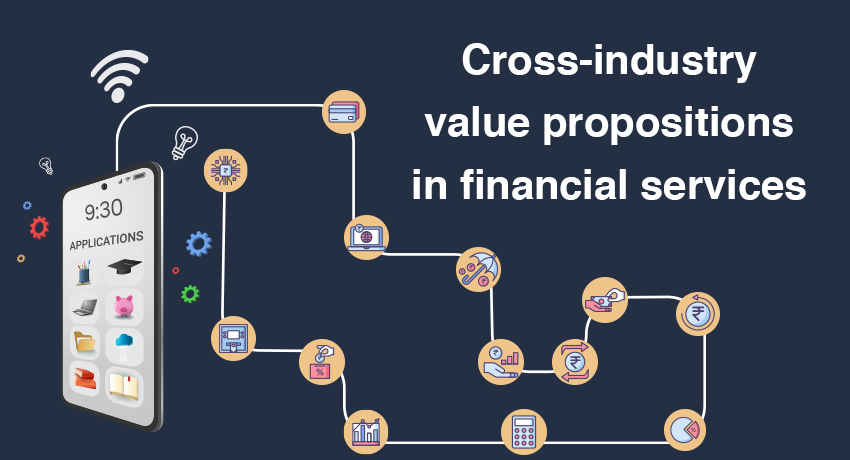The realm of financial services is turning highly dynamic to match the preferences and needs of the audience. Financial service providers are quickly shifting from product providers to service providers, thus paving the path for the emergence of cross-industry value propositions. Partnerships, alliances and an understanding of value addition have played a major role in facilitating an ecosystem to address and cater to non-financial offerings.
Fintechs, followed by traditional financial institutions, started with the intent to introduce financial services as a part of everyone’s everyday life. Terming it embedded finance, they integrated financial services to non-financial businesses for ease of use and to ensure an end-to-end customer journey. From daily necessities to non-essentials, embedded finance covered all the needs. Furthermore, the intent to provide a frictionless experience ensured financial institutions were constantly innovating thereby making themselves relevant in the lives of their customers. The interaction and personalized offerings make them not only the primary bank or insurer but the personalized primary service provider.
Fintechs have invested heavily in brand recall, personalization and security to onboard as many customers and build an unforgettable customer experience. This trend is predominantly observed in Asian Markets with service providers like PayTM, PhonePe, Google Pay, etc. For instance, Whatsapp, a messaging platform, has integrated UPI on its platform to offer end users a cross-industry value proposition. Non-financial businesses like Ola and Uber have also integrated payment and insurance options on their platform to allow passengers to complete their customer life cycle on a single platform.
Moving towards innovation, Fintechs are now working on further transforming the financial world by building Super Apps and competing with the BigTechs. Although there is talk about BigTech’s monopolizing Super Apps space, several Fintechs are working around it and devising unique propositions that are worth a collaboration.
Even public-listed Fintechs like Niyogin with a unique business model are participating in empowering non-financial businesses by offering Banking as a Service (BaaS). Niyogin’s platform, NiyoBlue, offers customers a complete life cycle. Customers can avail of credit, insurance, investments, banking products, payment products and much more on a single platform without having to leave the app. By integrating and embedding all the financial services on a single platform, Fintechs like Niyogin is a winning game because they cater to current customer preferences.
As an organization that focuses on financial inclusion, the cross-industry value proposition for Niyogin means to serve the underbanked by empowering small local businesses. Since the focus is on a specific customer segment, Niyogin has successfully built a specialized proposition around the said segment.
To conclude, the cross-industry proposition is a tool for Fintech and non-financial businesses alike to expand their service stack and offer their respective clients a bundle of services under a single customer life cycle.
